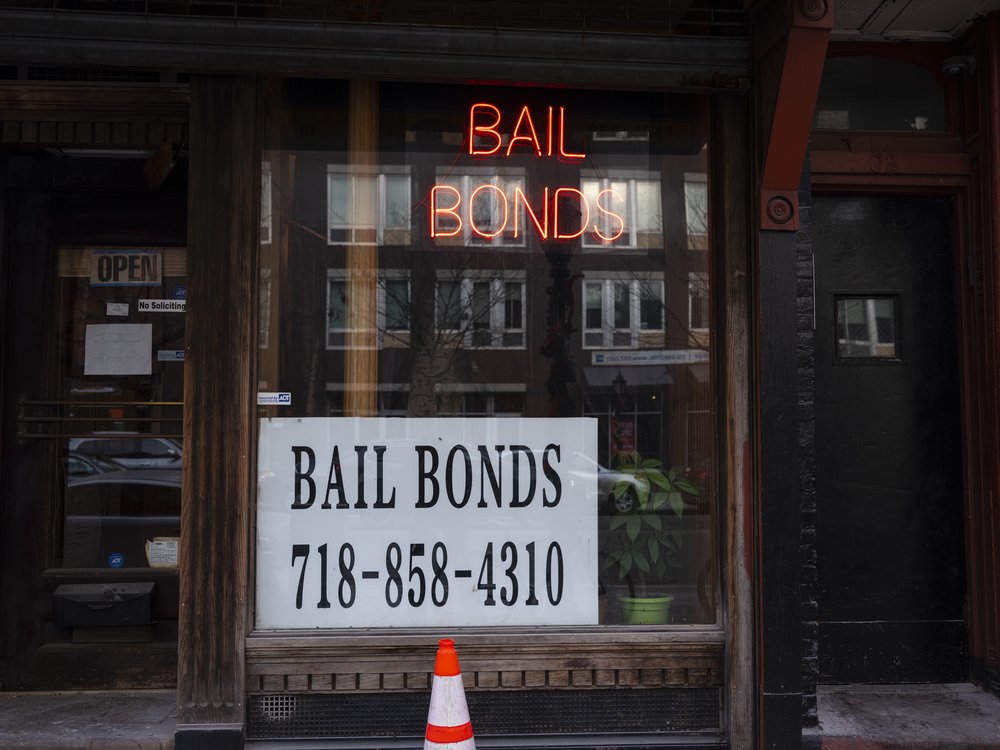Law meant to make bail more affordable in New York isn’t working, report finds
Jan. 8, 2025, 11 a.m.
Researchers studied a little-known portion of the controversial law in the first four years it was in effect.

A New York law aimed at making it more affordable for people to post bail after a loved one’s arrest is not working as planned, according to a new report shared exclusively with Gothamist.
State judges are supposed to give people posting bail the option of paying directly to the court instead of a bail bonding company. If the defendant they were posting bail for returned to court and followed a judge’s orders, they would get their money back at the end of the case. It was one of at least three different ways judges were required to set bail beginning in 2020.
The goal, according to criminal justice reform advocates, was to make it easier for families to get their loved ones out of jail, regardless of their income.
But judges often set different amounts for the different types of bail. Researchers at the NYU School of Law’s Zimroth Center and the judicial transparency group Scrutinize found that in the first four years since the law took effect, state judges hardly ever made bonds paid directly to the court the most affordable choice. Even though defendants technically had the option to avoid paying bail bonding companies or posting an entire bail sum in cash, the alternative was often less enticing because it was more expensive, according to the report.
“It seems that if judges are setting bail in these really high amounts, that the intent, essentially, is to make it onerous and potentially to make it so that it’s very unlikely that they’ll be able to pay it,” said Alana Sivin with the nonprofit Vera Institute of Justice, which advocated for changes to the state’s bail laws and has studied their effects.
Al Baker, a spokesperson for the state Office of Court Administration, said the agency will carefully review the report.
Loved ones, who often have meager resources, sometimes empty savings and retirement accounts, or skip meals and rent payments, to get a friend or relative out of jail, said Arielle Reid, director of the Decarceration Project at the nonprofit Legal Aid Society. She said allowing people to pay a deposit directly to the court does not spare them their money while the case is pending. But it does allow them to “rest easy knowing that once the case is over, they’ll get it all back,” she said.
Fees paid to bail bonding companies, on the other hand, are not refundable. Those companies can also require other collateral, like a deed to your home.
Bail reform, a 5-year-old legislative package intended to rein in state judges’ use of bail, was supposed to move the courts away from bail bonding companies and their non-refundable fees. But the report found that in 78% of cases where bail was set between January 2020 and December 2023, judges made paying a bail bonding company the most affordable choice.
Loved ones will likely still turn to those companies if they are the cheapest and most accessible option in a moment of dire need, said Oded Oren, executive director of Scrutinize and one of the report's authors.
“If you do not have unlimited amounts of money and are, in fact, coming from a lower-income background, commercial bonds will be much cheaper upfront for you,” he said. “But even though they are cheaper upfront, they actually cost you eventually more.”
It is not clear why judges are setting bail in this way, and a spokesperson for the Office of Court Administration did not respond to specific findings or recommendations outlined in the report. Still, researchers made a few hypotheses, including that judges may not fully understand the law, or they may disagree with it.
Oren said judges might also prefer to outsource bail to a third party rather than ask an already-overburdened court system to keep tabs on all the defendants who do not show up to court. He said bail reform has been in effect long enough that the courts should have asked for the resources they need to implement this portion of it.
Reid at the Legal Aid Society said the report’s findings reflect what she and her colleagues see daily in New York City courts. She said judges often set such high amounts for the bonds that can be paid directly to the court that people cannot afford them — or tack on cumbersome requirements, like producing years of pay stubs and tax returns.
Even the process of qualifying for and paying one of these bonds can be more burdensome, said Reid, because it requires people to come to court during normal business hours, which are in the middle of most people’s work days.
“These are people who have bail set and have family members who want to pay and are willing to pay but who are being shut out of that process because judges are just making it impossible to pay,” she said.
NY criminal justice policies on shaky ground after 5 years of bail reform backlash 5 questions answered about changes to New York's bail laws